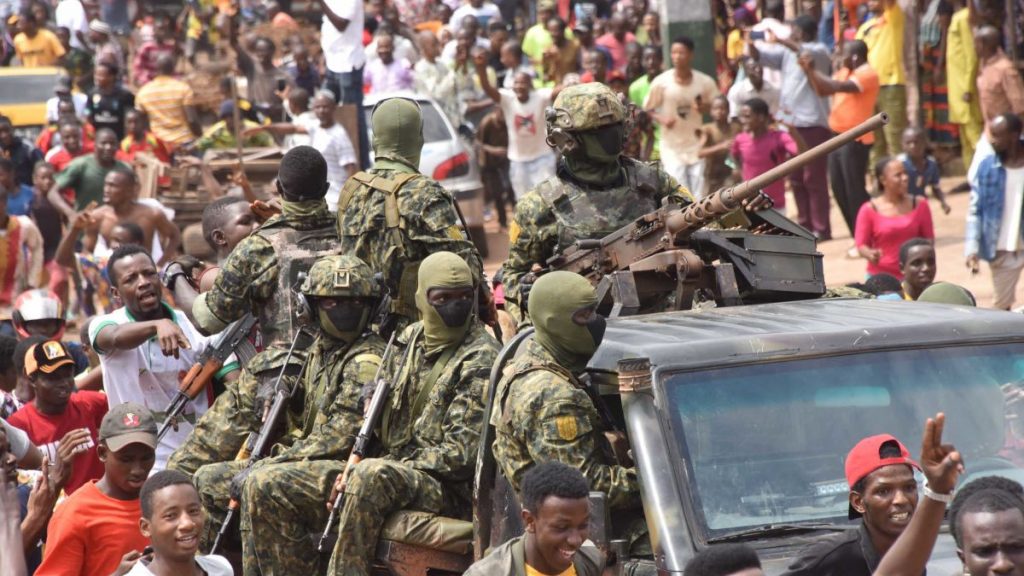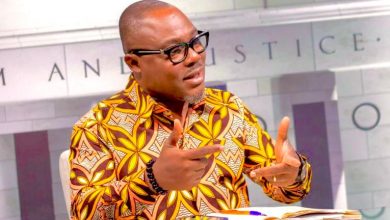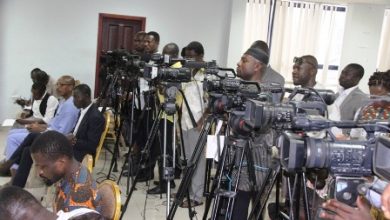Unraveling the Shadows of Power: The Struggle, Impact, and Reawakening of Coups in Africa

In the heart of the African continent, a tumultuous wave has surged—a wave not of hope and progress, but of coups.
Over the past year and a half, the region has witnessed a disheartening surge in military takeovers, leaving countries grappling with uncertainty, instability, and a haunting sense of déjà vu.
From Burkina Faso to Sudan, Guinea to Chad, and Mali to Niger, the continent’s political landscape has been marred by these sudden upheavals, raising poignant questions about their origins, their persistence, and their lasting repercussions.
Let us journey through some coups that have taken place in recent times:
NIGER
In July 2023, members of Niger’s presidential guard detained President Mohamed Bazoum inside his palace and appeared on national television saying they were seizing power to end the “deteriorating security situation and bad governance.”
Days later the junta declared the head of the presidential guard, Abdourahamane Tiani, the new head of state, raising concerns about the security of a region where Niger has been a key ally of Western powers seeking to contain insurgencies by groups linked to Al Qaeda and Islamic State.
The main West African bloc ECOWAS has been trying to negotiate with the coup leaders but said it was ready to send troops into Niger to restore constitutional order if diplomatic efforts failed.
Niger has authorised Mali and Burkina Faso’s armed forces to intervene on its territory in case of an attack.
BURKINA FASO
In January 2022, Burkina Faso’s army ousted President Roch Kabore, blaming him for failing to contain violence by Islamist militants.
Coup leader Lieutenant Colonel Paul-Henri Damiba pledged to restore security, but attacks worsened, eroding morale in the armed forces that led to a second coup in September 2022 when current junta leader Captain Ibrahim Traore seized power.
GUINEA
In September 2021, special forces commander Colonel Mamady Doumbouya ousted President Alpha Conde. A year earlier, Conde had changed the constitution to circumvent limits that would have prevented him from standing for a third term, triggering widespread rioting.
Doumbouya became interim president and promised a transition to democratic elections within three years.
ECOWAS rejected the timeline and imposed sanctions on junta members and their relatives, including freezing their bank accounts.
The military regime later proposed to start the 24-month transition in January 2023, but opposition parties say it has done little to put in place institutions and a roadmap to return to constitutional rule.
CHAD
In April 2021, Chad’s army took power after President Idriss Deby was killed on the battlefield while visiting troops fighting rebels in the north.
Under Chadian law, the speaker of parliament should have become president. But a military council stepped in and dissolved parliament in the name of ensuring stability.
Deby’s son, General Mahamat Idriss Deby, was named interim president and tasked with overseeing an 18-month transition to elections.
The unconstitutional transfer of power led to riots in the capital N’Djamena that were put down by the military.
MALI
In August 2020, a group of Malian colonels led by Assimi Goita ousted President Ibrahim Boubacar Keita. The coup followed anti-government protests over deteriorating security, contested legislative elections and allegations of corruption.
Under pressure from Mali’s West African neighbours, the junta agreed to cede power to a civilian-led interim government tasked with overseeing an 18-month transition to democratic elections to be held in February 2022.
But the coup leaders clashed with the interim president, retired colonel Bah Ndaw, and engineered a second coup in May 2021. Goita, who had served as interim vice president, was elevated to the presidency.
ECOWAS lifted some of the sanctions on Mali after the military rulers proposed a two-year transition to democracy and published a new electoral law. The country is scheduled to hold a presidential election in February 2024 to return to constitutional rule.
I’m sure the same question is running in your head; the question of what is driving this recurring script of power shifts?
The answer could be an intricate web of factors, often woven from threads of dissatisfaction, political unrest, and leaders’ personal ambitions. Could it be flickers of socio-political discontent, exacerbated by economic disparities, have ignited the flames of civil unrest?
Or maybe the thirst for unchecked power has driven some leaders to overstay their welcome, bypassing term limits, and inciting public outrage?
With institutions weakened and democracy threatened, the stage has been set for the military to seize control.
But why the resurgence now, in an era when democracy was supposed to be gaining traction?
The phenomenon of coups, dormant for a while, has reared its head once more, casting a shadow over the continent’s hard-fought democratic progress. The recent string of takeovers has sparked concerns that years of strides toward greater democracy might be unraveling, leaving citizens wondering if the past progress was merely a fragile facade.
The echoes of these coups reverberate across Africa’s social fabric, resonating with consequences that ripple far beyond borders.
National economies suffer as investments waver and foreign partnerships falter. Development projects stall, and vital infrastructure projects are left hanging in limbo, crippling progress and the pursuit of better lives for millions.
As the global community watches, United Nations Secretary-General Antonio Guterres’s words come to life, describing an “epidemic” of coups that feeds off an environment where military leaders perceive impunity.
The cycle perpetuates as some coup leaders promise democratic transitions, yet actions rarely align with their words. A ticking clock marks the deadline for these nations to return to constitutional rule, with international organizations exerting pressure and imposing sanctions to prod them forward.
In a continent where history’s echoes are inescapable, the challenge remains to break free from the grip of coups and the turmoil they usher in.
Africa’s resilience, its determination to steer its destiny away from authoritarian shadows, will be the ultimate testament to its spirit. As the struggle to safeguard democracy ensues, the hope is that these recent power grabs will serve as a reminder—a stark lesson of the price paid for veering off the path to progress.




